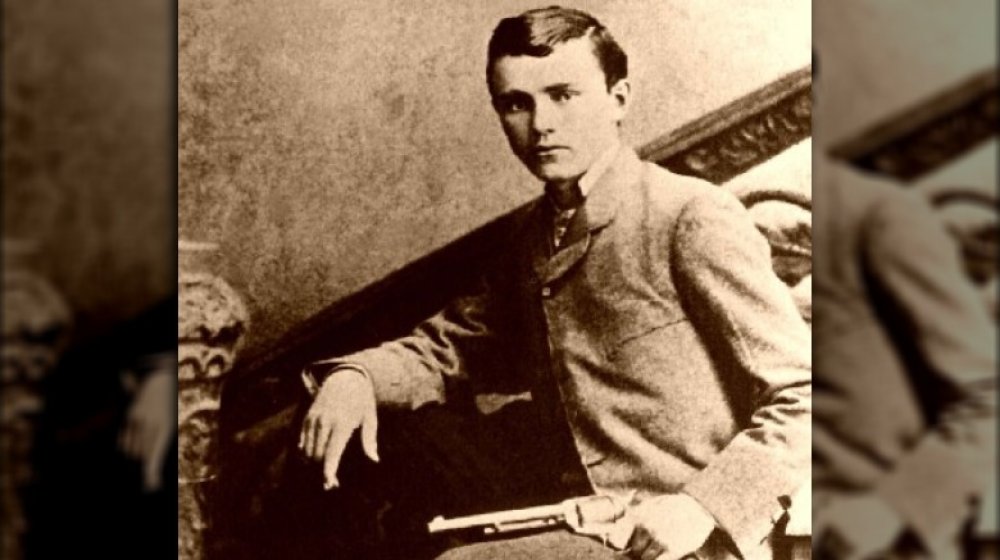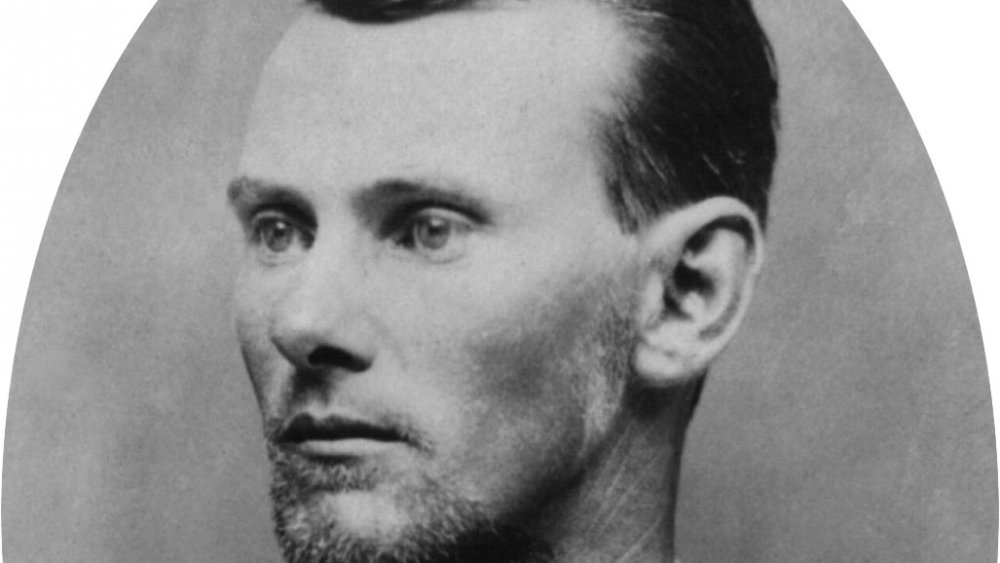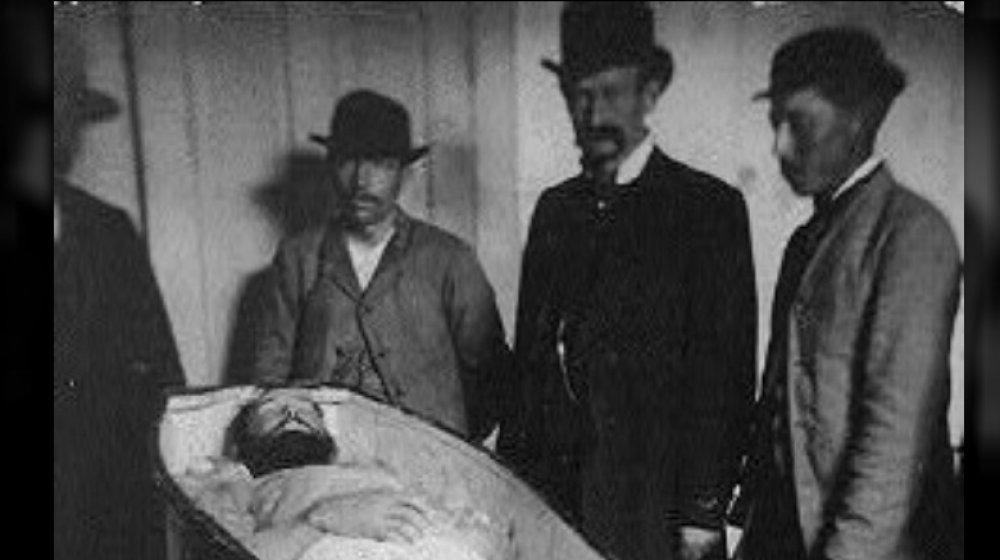What Happened To The Man Who Killed Jesse James?
On September 7, 1876, the James-Younger gang was "shot all to hell," writes Mark Lee Gardner, while trying to rob a bank in Northfield, Minnesota. (It's recurring imagery in American crime reporting. After he led the fatal ambush of Bonnie and Clyde, former Texas Ranger Frank Hamer said, "We just shot the devil out of them.")
The attempted bank job really did go badly. Frank and Jesse James, with their cousins the Youngers, and a couple of other gang members tried to rob a town which shot back. Gang members were killed in the town's streets; others were wounded and fled. Frank and Jesse split off from the Youngers and escaped.
The James brothers of Missouri had been on a profitable crime spree for decades, arguably beginning with military brutality during the Civil War (they fought for the Confederacy) and the years after. Mostly they stole: from banks, from trains. They would have told you they were still fighting the Civil War and it was noble work. Except it wasn't. It was armed robbery, taking what didn't belong to them, what they hadn't earned, at the point of a gun, willing and able to kill anyone foolish enough to defy or deny them. There were legends that they'd use those proceeds to help poor Southerners suffering in the post-war devastation, but there's no proof of Robin Hood whatsoever. They liked horses and gambling, spent freely of what they stole, and had prices on their heads as a result.
Jesse James had a price on his head. Bob Ford tried to collect
After the Northfield debacle, Frank was sensible enough to hide in plain sight as a farmer in Tennessee. Jesse did, too, but gave it up more quickly than Frank. By 1879 Jesse was back on the outlaw trail. Frank rejoined him in 1881 but retired again to farming the next year. Jesse put together other gangs, with uneven success, until 1882. He recruited two brothers, Robert (Bob) and Charley Ford to help with a bank robbery he was planning for Platte City, Missouri. They had been minor gang members up to that point, but the personnel pool was getting more and more shallow.
Bob's problem was that he'd killed one of Jesse's cousins and tried to cover it up. As All That's Interesting reports, that crime was discovered and Bob was offered a deal: get out of jail, free, and no charges — providing he killed Jesse James. Oh, and there was a bounty involved, too — $5,000, dead or alive. Per Legends of America, on April 3 Bob and Charley met with Jesse in his home in St. Joseph, Missouri, to discuss the upcoming Platte City job. Jesse had taken off his jacket and his guns and when he stood up to dust and straighten a picture on the wall, Bob shot him in the back of the head. Bob and Charley bolted; Jesse's wife, Zee, heard the shot and cradled Jesse as he bled out. Bob shouted that the gun had gone off as an accident. (Spoiler: Zee didn't believe him.)
Jesse was 34 years old when Bob Ford killed him
Afterwards, things didn't go well for the Fords. Bob was arrested for first degree murder of both Jesse and Jesse's cousin, and Charley as an accomplice. The governor, with whom they'd cut their assassination deal, stepped in and granted them both full pardons, but they didn't receive anywhere near the reward promised. Instead of being treated as heroes, they were widely regarded as traitors who'd murdered a man from behind. Charley tried to hide his identity, moving around the country, but finally broke, perhaps under the strain, and committed suicide in 1884.
Bob, however, tried to cash in, touring and giving lectures about his side of events. The public wasn't having it; a popular song characterized the situation and him as "the dirty little coward ... who laid Jesse James in his grave." He tried saloon keeping in New Mexico, but failed. He tried again in Creede, Colorado, in 1892. It was there that Ed O'Kelley walked up to Ford and emptied a double-barrelled shotgun into his neck, killing him instantly, writes True West Magazine. Unlike Ford, O'Kelley was facing the man he shot.


